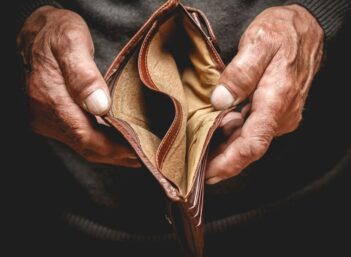What is Savings?
In economics, savings is the amount that is left after spending. In banking, savings refers to savings accounts, which are short-term, interest-bearing deposits with a bank or other financial institution.
How Does Savings Work?
There are only two things to do with money: Save it or spend it. For example, let's say John Doe's paycheck is $1,600 every two weeks, or $3,200 a month. His expenses are the following:
Rent: $1,300
Car payment: $450
Student loan payment: $450
Credit card payment: $300
Groceries: $250
Utilities: $75
Cell phone: $75
Gas: $100
Total expenses: $3,000
Because John spends $3,000 of his $3,200 income per month, he saves $200.
If John's expenses are higher than his income, he is not saving; he is living paycheck-to-paycheck. If he gets fired, has an emergency or his company closes in two weeks, he would have little backup.
In banking terms, savings accounts are time deposits, meaning that a bank can require the account holder to give notice before withdrawing the funds or impose a penalty for withdrawal before a specified date. The interest rates on savings accounts vary by institution but are generally lower than interest rates on longer-term deposits, such as CDs or even money market accounts. Interest is usually compounded monthly.
Why Does Savings Matter?
It is dangerous not to save money. Not only is it financially risky, it creates unnecessary stress. To enable savings, John must reduce his expenses so that they are less than his income, and he should make regular, disciplined deposits into a savings and/or investment vehicle.
Ironically, when a country saves so much money that it hardly spends anything, its economy can suffer. This is called the paradox of thrift, which is an economic theory developed by John Maynard Keynes that states that the more people save, the less they spend and thus the less they stimulate the economy.
It is important to note that the interest rate paid on a savings account may be below the inflation rate, meaning that the account actually might lose purchasing power over time despite the interest earned.



